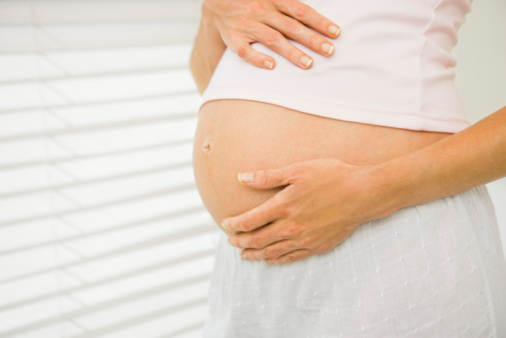 A new study published in the journal eLife suggests that a mother’s digestive system enlarges during early pregnancy to meet the demands for the growing baby—meaning, she doesn’t necessarily have to eat for two during the early stages of pregnancy.
A new study published in the journal eLife suggests that a mother’s digestive system enlarges during early pregnancy to meet the demands for the growing baby—meaning, she doesn’t necessarily have to eat for two during the early stages of pregnancy.
Researchers thought that a woman’s appetite only changed when her baby’s demand for energy increased. This recent study reveals how a hormone—called the “juvenile hormone”— prepares the intestine to adapt to meet the energy demands of fertilized eggs.
Fruit flies were tested on in this study as they are useful lab models for exploring human biology. Researchers discovered that with fruit flies, the level of the juvenile hormone rises soon after mating. If the hormone is prevented from altering the gut, the flies produce fewer eggs.
Researchers believe that the findings could explain why some women struggle to regain normal weight after giving birth: A woman’s intestines may stay enlarged and her body can continue to extract more calories from food.
Dr. Joe McNamara, head of population and systems medicine at the MRC, concludes: “This research points to a new scientific explanation why eating for two during pregnancy is not necessary, and may even be harmful, as a growing body of evidence indicates that a mother’s diet can impact a child’s propensity to be obese in later life.”
Source for Today’s Article:
Paddock, C., “Study explains why eating for two during pregnancy is not necessary,” Medical News Today web site, July 29, 2015; http://www.medicalnewstoday.com/articles/297431.php.
